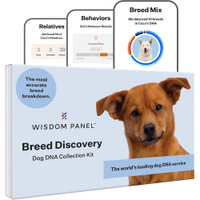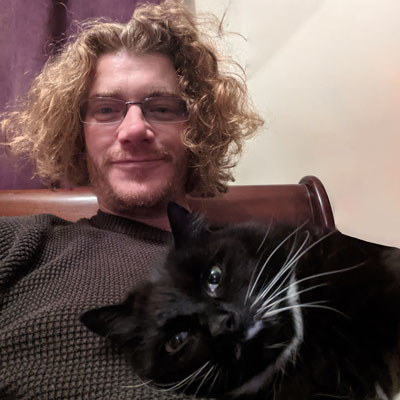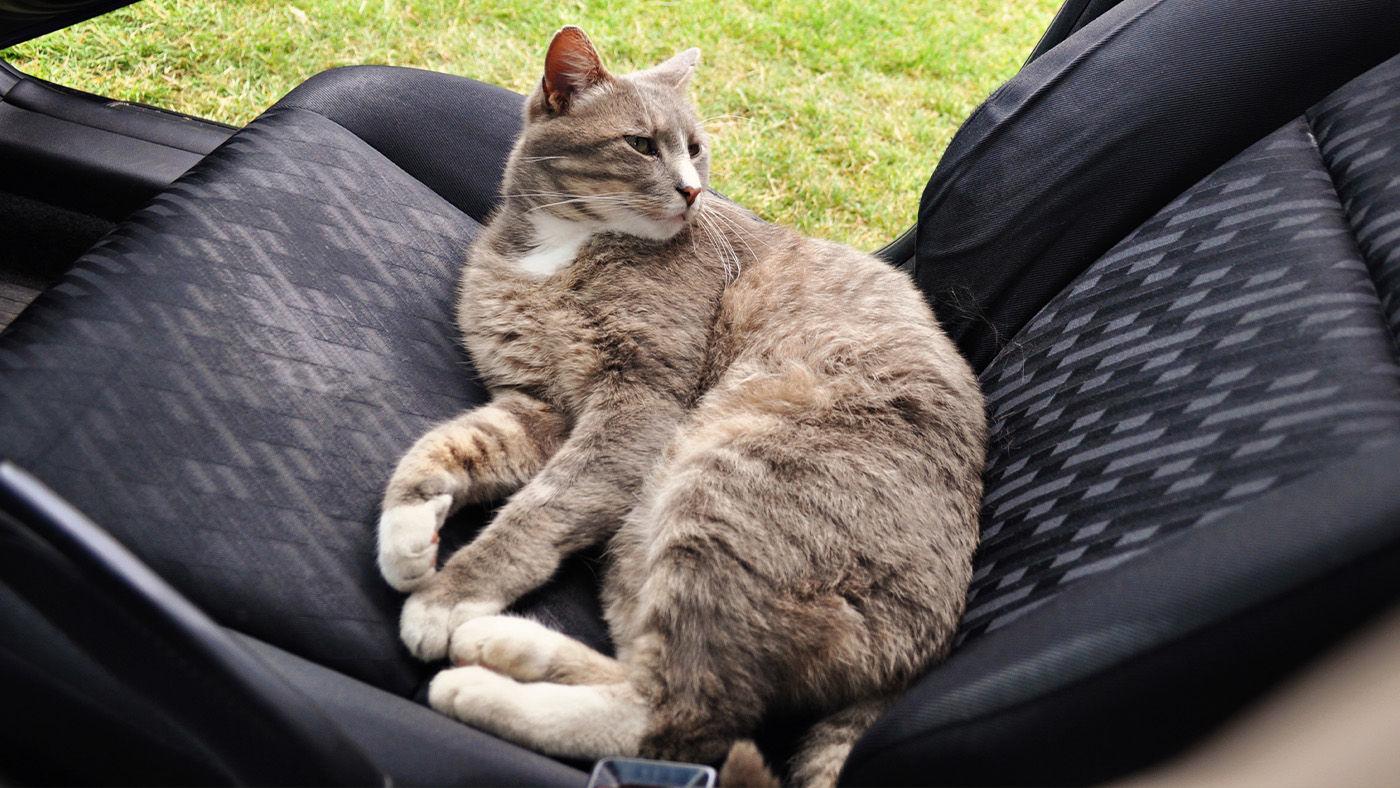Chow Chow: Breed profile
The Chow Chow has the face of a lion and the heart of one too, but with the right owner, this fiercely protective dog can make a loyal companion
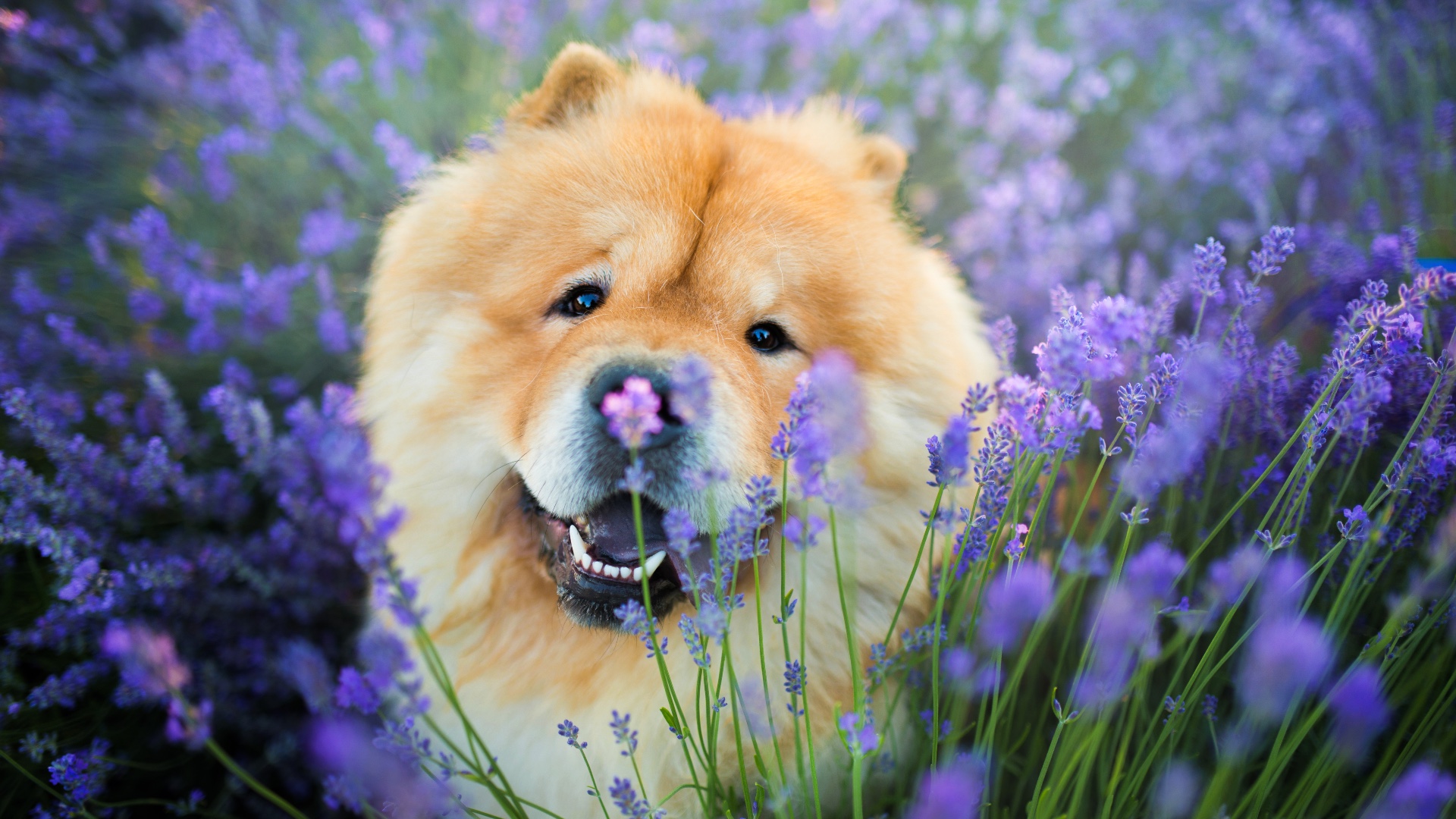
The Chow Chow is a sturdily built and attractive dog with a square body and stiff, straight legs giving it a distinctive stilted gait. They have two coats of hair, triangular rounded ears, and a mane of fur around their head which has led people to compare them with lions. And, like the king of the jungle, they are strongly independent and rather aloof with people they don't know. They’re also fiercely loyal, but need to be socialized from a young age to prevent them from acting aggressively towards unknown animals and children.
Chow Chows are one of the earliest known basal breeds. They originated in China thousands of years ago where they were used as hunting and guarding dogs, sled pullers, and, unfortunately for them, as a source of food. The name Chow Chow may even come from this fact, as 'Chow' comes from the Cantonese word for “edible”, but it seems equally likely that it derives from the name for unclassified supplies, which were listed as 'Chow' on ship manifests, much as we would write 'Etc.' today.
They are notable for their distinctive blue-black tongue that Chinese legend says is because when the world was formed some blue bits of sky fell to earth and these dogs licked them up. Or it may be that they have higher than usual pigment levels in their skin and tongue – we'll let you decide!
Chow Chows seem to know they are a very old dog breed, as, like all the best aristocrats, they have a very stately, refined and dignified manner. These are not social, outgoing dogs, but keep themselves to themselves, unless they perceive a threat to their owner, in which case they can become aggressively protective. Despite being bred as working dogs, the modern-day Chow Chow is no lover of exercise, so they are suited to city living, but only if they have been trained not to bark at every stranger they meet.
How much exercise does a Chow Chow need?
Life expectancy: 10-12 years
Average weight: Male: 50 to 75 pounds / 23 to 34 kg Female: 50 to 75 pounds / 23 to 34 kg
About the same as: A nine-year old child
Exercise level: Moderate
Although Chow Chows were bred to be multi-purpose working dogs which were often used for herding and guarding livestock, they are classed as a moderate energy breed. Every dog is different, with some enjoying exercise more than others, but an hour of exercise is usually enough for the typical Chow Chow. A 15-20 minute walk twice a day as well as 20 minutes of free play with some of the best dog toys like balls and tug ropes will give them the mental and physical stimulation they need.
Younger dogs will need more exercise to work off pent-up energy, but this breed tends to become less active as they get older. Remember though that even lazy dogs still need exercise to keep their bones and muscles strong and supple, so although it may be a struggle to get them excited for their walk, you should persist.
A note of caution: due to their heavy coat they can overheat when exercising in warm weather, so try to walk them in shaded areas or reduce the amount of exercise they do on hot and humid days. Watch out for them lagging behind and panting excessively and if you see this behavior let them rest for a while and give them plenty of water. That said, they aren't shy in letting you know when they’re uncomfortable - owners have found their Chow Chow will often lay down and not move to show when they've had enough exercise!
Are Chow Chows easy to train?
Suitable for: People with plenty of time to spend training this devoted dog
Not suitable for: Active people looking for a dog that will get along with everybody
Temperament: A fiercly protective and loyal dog
Shedding: High
Chow Chows must be trained from an early age otherwise they can be very resistant to authority. They can be extremely stubborn and the aloofness of Chow Chows means that you first need to gain their respect before they will start to engage in training activities. Persistence is key with this breed, as well as consistent reinforcement by showing them you love them and bribing them with the best dog treats. They’re not very intelligent, bless them, and fall into the 135th position out of 138 on the Coren scale – the benchmark for canine intelligence – so it's unlikely they will learn more than a few training commands.
It is also important to get Chows Chows used to children, other adults and dogs if you don't want their fiercely loyal streak to cause them to bark or attack any strange creature they perceive as a threat to their master. Again, this should be started young to overcome their natural loyalty and guarding instincts.
What do Chow Chows eat?
Because they tend not to be very active dogs, you need to closely monitor your Chow Chow's diet to ensure they don't put on weight. While it's tempting to spoil your Chow Chow, a balanced diet in controlled portions will ensure they avoid getting obese. Chow Chows originated in China, where they were likely fed low-nutrient food like rice and grains, so they don't deal well with a rich diet, and this can lead to health complications.
However, despite their ancestor's diet, modern Chows Chows don't deal well with grains today, so choosing a grain-free complete dog food formula will give them the nutrition they need to stay fit and healthy. It's also worth bearing in mind that because Chow Chows, like most pedigree dogs, can be susceptible to allergies, it's best to give dog treats and table scraps very sparingly.
What is the temperament of a Chow Chow like?
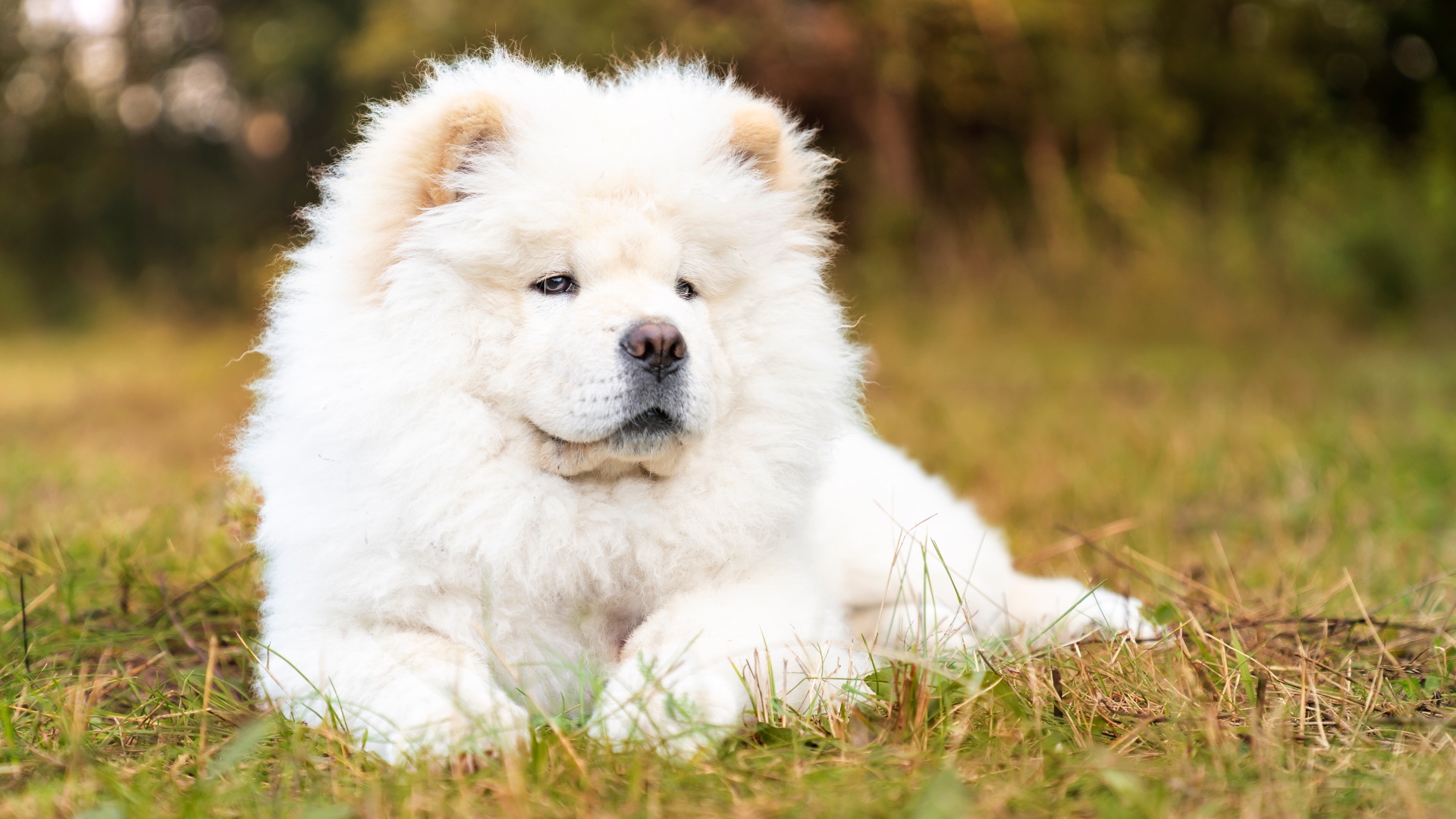
Chow Chows are an independent breed known for their distrust of strangers and aggressiveness with other dogs, so they must be socialized with other animals and children from an early age. They often display a dignified aloofness to anybody not in their family unit and can be fiercely loyal to those they feel close to. They tend to single out one person to attach themselves to which they will be particularly devoted.
They were bred to be guard and herding dogs and this protectiveness, if not socialized, can lead them to be nuisance barkers, so training is needed to ensure they learn to control these instinctive guarding tendencies. Their independence and stubborn streak mean persistence is needed to train them, but they still make very good family pets as they tend to be devoted and very protective to their family unit. They can become dominant and try to be the boss, so regular reinforcement training is needed if you don't want them to start trying to train you!
Do Chow Chows shed a lot?
Amount Of Shedding: Heavy seasonal shedding
Easy To Groom: Yes
General Health: Moderate – needs regular screenings
Potential For Weight Gain: High
Chow Chows are very clean dogs, with the fastidiousness of cats, so they tend to have very low body odor and they do their best to keep themselves free from dirt. However, with their thick double coat, they still require regular grooming, and the amount depends on the coat type of your Chow Chow. Rough-coated Chow Chows need grooming once a day to prevent their thick coat from becoming tangled, whereas smooth-coated Chows Chows will only need a quick brush once a week. If a regular routine is maintained this can be done at home without needing a grooming professional.
Chow Chows have two heavy shedding periods a year – once in the winter and once in the summer – and grooming will need special attention at these times as they lose a lot of hair. We’re talking about bin bags of the stuff!
It's good practice to use a mild dog shampoo once a month to keep their fur clean and fresh, and to bring out the colors in their thick coat. Because of their scrunched-up face, particular care and attention need to be paid to the areas surrounding the eyes and skin folds around the muzzle to ensure they remain dirt-free to prevent infections or discomfort. Remember to use a cool hair dryer to dry them to avoid them overheating. Chow Chows also need to have their nails trimmed about once a month. Again, you can do this at home with your own pet nail clippers.
Wisdom Panel Breed Discovery DNA Kit | Amazon
Not sure exactly what breed your dog is? This kit screens for 365+ breeds – because knowing every detail about your dog helps you understand how best to care for them.
Chow Chow health problems
As with most purebred pedigrees, Chows Chows are predisposed to certain conditions so it's good to buy from a reputable breeder. Their unusually small eyes and folded facial skin mean they are susceptible to Entropion – a condition where the eyelids roll inwards meaning the eyelashes irritate the eye.
Their stiff gait also means they are prone to joint conditions such as hip and elbow dysplasia, which is where the joints don't fit together properly. Over time this can lead to arthritis. They can also be allergic to certain foods and can have thyroid issues. Prevention is better than cure with all of these conditions, so regular screenings by the vet is essential.
As Chow Chows originated in China where they were typically fed a diet of grains they can put weight on quickly if given too many rich foods. Portion and nutrition control, and regular exercise, are essential to keep them trim. They can also suffer from Gastric Dilatation Volvulus (GDV) – also known as ‘bloat’, a dangerous condition where the stomach twists and will require emergency veterinary attention.
One last word of caution, if you live in a hot and humid country Chow Chows do not deal well with heat. They need temperate climes to prevent them from overheating, so if you are in a region where you need to regularly put the air conditioning on, then a Chow Chow is not for you.
Should I get a Chow Chow?
If you are prepared for their independent personalities and their tendency to ignore other people in favor of their chosen human companion, Chow Chows can make a very loyal family pet with the right training. They are not for active people, as they can't sustain long bouts of exercise, and they are rarely used as show dogs because of their relatively low intelligence and resistance to training.
However, if you are after a sedentary and distinctive-looking dog breed which you are happy to groom and be consistent with their training, it would be harder to find a more devoted companion.
Want to learn more about this breed? Here are our favorite chow chow facts
PetsRadar Newsletter
Get the best advice, tips and top tech for your beloved Pets
Jamie Middleton is a freelance editor and writer who has been editing and creating content for magazines and websites for over 20 years. As well as writing about the pets he loves, he has helped create websites about tech and innovation like TechRadar.com, Innovate UK and TechSPARK, written programmes for music festivals, books on inventions and architecture, TV listings magazines, and edited publications about cars such as Lexus, Toyota and Jaguar. In his spare time he writes fiction books and poetry - or at least he does when he is permitted to by his cat Pirate, who enjoys the warmth of laptops too much to allow being creative to get in the way.
